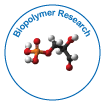Наша группа организует более 3000 глобальных конференций Ежегодные мероприятия в США, Европе и США. Азия при поддержке еще 1000 научных обществ и публикует более 700 Открытого доступа Журналы, в которых представлены более 50 000 выдающихся деятелей, авторитетных учёных, входящих в редколлегии.
Журналы открытого доступа набирают больше читателей и цитируемости
700 журналов и 15 000 000 читателей Каждый журнал получает более 25 000 читателей
Индексировано в
- Публикации
Полезные ссылки
Журналы открытого доступа
Поделиться этой страницей
Абстрактный
Clinical, Imaging and Pathological Characteristics of Brain Implanted Polylactic Co-Glycolic Acid Polymers Conjugated with Temozolomide
Jill Hicks, Simon Platt R, Shannon Holmes P, Elizabeth Howerth, Allison Haley, Jared Kaplan M and Edward Kaplan J
Definitive treatments for primary brain tumours are still sought. Slow- release local chemotherapy may provide a good effect and poly (lactide-co-glycolide) (PLGA) micro cylinders could allow this. We evaluated the neurological and histopathological consequences, and MRI visibility, of PLGA micro cylinders conjugated with Temozolomide and gadolinium implanted in normal canine brains. Eight purpose-bred beagles had cerebral implantation of micro cylinders combined with Temozolomide and gadolinium. MRI was performed following implantation and 28d later prior to necropsy and brain histopathology. All adverse events were associated with implantation and resolved. Dogs with six micro cylinders at 0 and 6.25% gadolinium had mild inflammation and all other dogs had greater brain inflammation, which increased with higher gadolinium concentrations and micro cylinder number. Micro cylinders with gadolinium were identifiable on MRI. Brain implantation of PLGA micro cylinders conjugated with gadolinium and Temozolomide is tolerated in healthy beagles. The lowest gadolinium percentage and micro cylinder number should be used if this therapy is pursued
Журналы по темам
- Биохимия
- Ветеринары
- Генетика и молекулярная биология
- Геология и науки о Земле
- Еда и питание
- Иммунология и микробиология
- Инженерное дело
- Клинические науки
- Материаловедение
- медицинские науки
- Науки об окружающей среде
- Общая наука
- Сельское хозяйство и аквакультура
- Социальные и политические науки
- Уход и здравоохранение
- Фармацевтические науки
- Физика
- Химия

 English
English  Spanish
Spanish  Chinese
Chinese  German
German  French
French  Japanese
Japanese  Portuguese
Portuguese  Hindi
Hindi